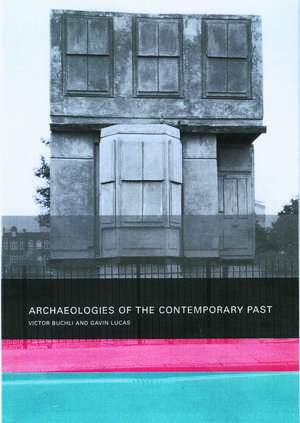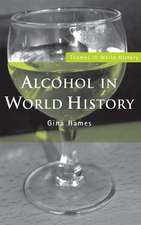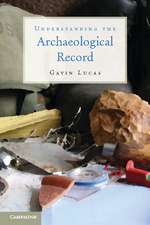Archaeologies of the Contemporary Past
Autor Victor Buchli, Gavin Lucasen Limba Engleză Paperback – 25 ian 2001
This volume represents the most recent research in this area and examines a variety of contexts including:
* Art Deco
* landfills
* miner strikes
* college fraternities
* an abandoned council house.
| Toate formatele și edițiile | Preț | Express |
|---|---|---|
| Paperback (1) | 412.37 lei 6-8 săpt. | |
| Taylor & Francis – 25 ian 2001 | 412.37 lei 6-8 săpt. | |
| Hardback (1) | 999.46 lei 6-8 săpt. | |
| Taylor & Francis – 25 ian 2001 | 999.46 lei 6-8 săpt. |
Preț: 412.37 lei
Nou
Puncte Express: 619
Preț estimativ în valută:
78.92€ • 82.09$ • 65.15£
78.92€ • 82.09$ • 65.15£
Carte tipărită la comandă
Livrare economică 14-28 aprilie
Preluare comenzi: 021 569.72.76
Specificații
ISBN-13: 9780415232791
ISBN-10: 0415232791
Pagini: 206
Dimensiuni: 152 x 229 x 14 mm
Greutate: 0.36 kg
Ediția:1
Editura: Taylor & Francis
Colecția Routledge
Locul publicării:Oxford, United Kingdom
ISBN-10: 0415232791
Pagini: 206
Dimensiuni: 152 x 229 x 14 mm
Greutate: 0.36 kg
Ediția:1
Editura: Taylor & Francis
Colecția Routledge
Locul publicării:Oxford, United Kingdom
Public țintă
Postgraduate and UndergraduateRecenzii
'This book provides a long sequence of moving, powerful papers that confront and challenge us. the authors in this volume can be congratulated for pushing beyond the edges of the discipline and so opening a rather different vision.' Ian Hodder,from the Epilogue.
'A good, interesting book...a crucial insight for anyone in heritage management.' - K.Kris Hirst, About.com
'A good, interesting book...a crucial insight for anyone in heritage management.' - K.Kris Hirst, About.com
Cuprins
Figures, Contributors, Acknowledgements, Introduction, 1 The absent present: archaeologies of the contemporary past, PART I Production and consumption, PART II Remembering and forgetting, PART III Disappearance and disclosure, Conclusions, Index
Descriere
The Contributors to this volume represent the most recent research in this exciting new field. This new archaeology gives a crucial understanding of the experience of modernity and the communities it continues to affect.
















